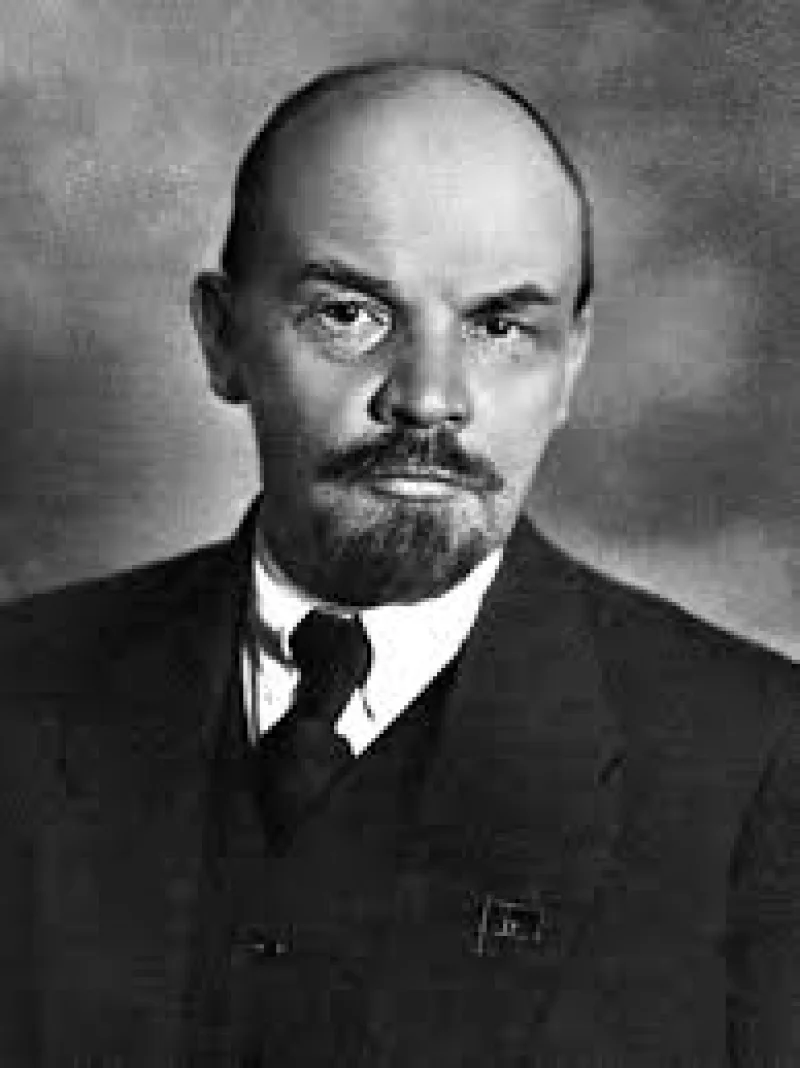Short Summary
Vladimir Lenin was a Russian revolutionary, political theorist, and the architect of the Bolshevik Revolution, which led to the establishment of Soviet Russia. He served as the head of government from 1917 to 1924 and played a crucial role in shaping the early Soviet state. Lenin is famous for his leadership in establishing a communist government in Russia and for his influence on Marxist theory, which became known as Leninism.
Early Life & Education
Born on April 22, 1870, in Simbirsk, Russia, Lenin was the son of Ilya Ulyanov, a schoolmaster, and Maria Alexandrovna Ulyanova. He was academically gifted and showed an early interest in politics, influenced by the execution of his elder brother, Alexander, for an attempted assassination of Tsar Alexander III. Lenin attended Kazan University to study law but was expelled due to his involvement in student protests. Despite this setback, he continued his education independently, earning a law degree in 1891. His exposure to radical political ideas during his formative years set the stage for his revolutionary activities.
Career Highlights
Lenin's career as a revolutionary began with his involvement in Marxist circles, leading to his exile in Siberia from 1897 to 1900. Following his release, he lived in Western Europe, where he continued to develop his revolutionary ideology and founded the newspaper Iskra. The 1917 Russian Revolution marked a turning point as Lenin led the Bolsheviks to seize control of the government. As head of the Soviet state, he implemented policies to consolidate power and transition Russia into a socialist state, including the controversial New Economic Policy. His leadership during the Russian Civil War secured the survival of the Soviet regime.
Major Achievements
- - Led the Bolshevik Revolution in 1917, overthrowing the Provisional Government.
- - Established the Soviet Union, the world's first communist state.
- - Developed Leninism, adapting Marxist theory to the Russian context.
- - Implemented the New Economic Policy to stabilize the Soviet economy.
Famous Quotes
- "There are decades where nothing happens; and there are weeks where decades happen."
- "Freedom in capitalist society always remains about the same as it was in ancient Greek republics: Freedom for slave owners."
Interesting Facts
- Lenin was a prolific writer, with his collected works spanning 45 volumes.
- He adopted the pseudonym "Lenin" during his exile, possibly derived from the Siberian River Lena.
- Lenin survived an assassination attempt in 1918, which left him with long-term health issues.
- His body has been preserved and displayed in a mausoleum in Red Square, Moscow, since his death.
- Lenin was an avid chess player and believed in the game's strategic importance.
Legacy / Influence
Lenin's legacy is profound, as he laid the foundation for the Soviet Union and influenced the course of 20th-century communism. His adaptation of Marxism inspired numerous communist movements globally, and his political practices informed the governance of subsequent Soviet leaders. Despite controversies surrounding his policies, Lenin remains a pivotal figure in the history of socialism and revolutionary politics.
FAQ
Q: Why is Vladimir Lenin famous?
A: He is famous for leading the Bolshevik Revolution and establishing the Soviet Union.
Q: What did Lenin contribute to political theory?
A: Lenin developed Leninism, which adapted Marxist theory to Russian conditions.
Q: What was the New Economic Policy?
A: It was a policy introduced by Lenin to stabilize the Soviet economy by allowing some private enterprise.
Q: Where is Lenin's body located?
A: His body is displayed in a mausoleum in Red Square, Moscow.








